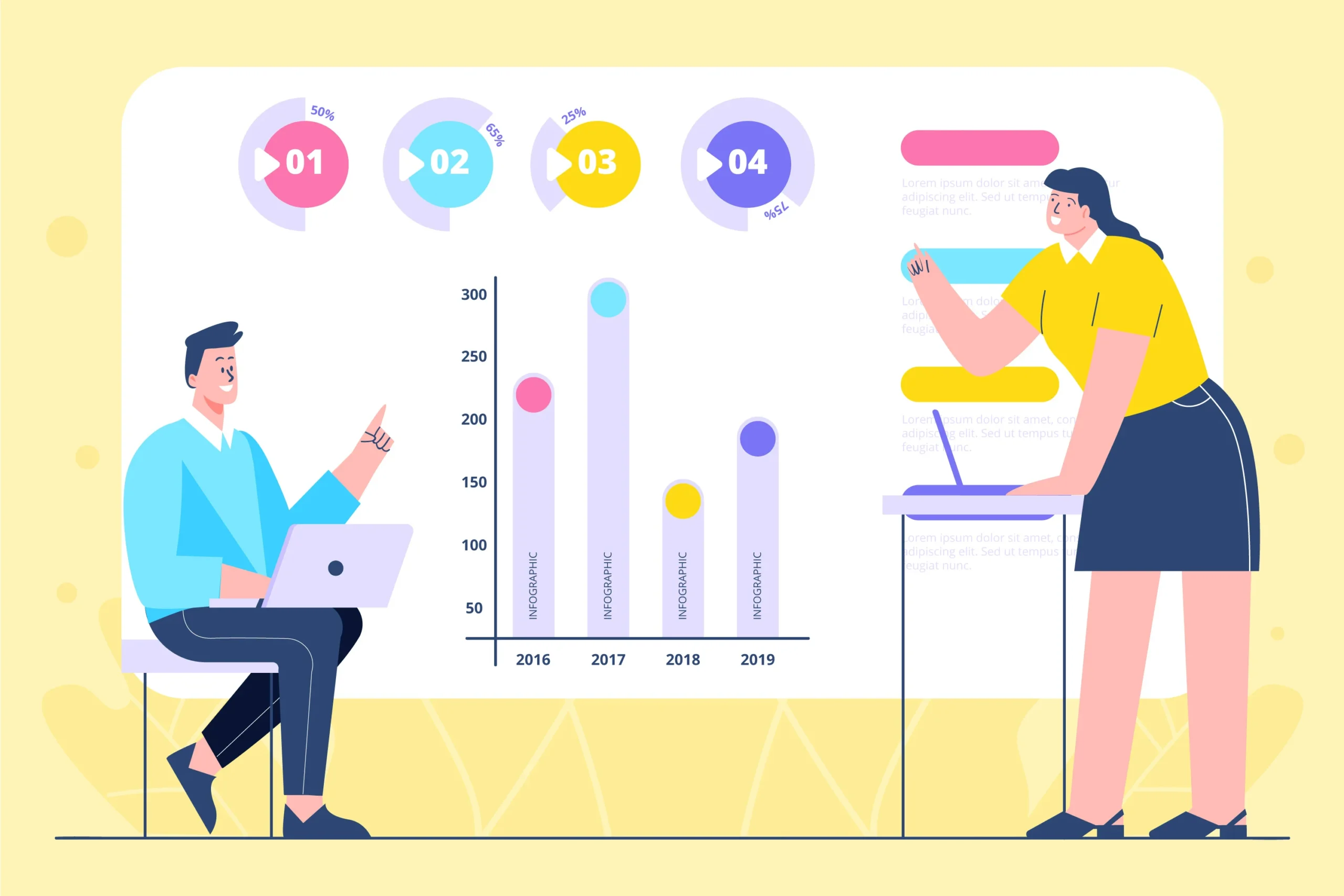Introduction
Analytical skills are crucial in today’s complex and rapidly evolving world. These skills involve the ability to evaluate information, identify patterns, solve problems, and make informed decisions. Whether you are a student, professional, or entrepreneur, improving your analytical skills can enhance your performance and open doors to new opportunities. This article provides a comprehensive guide on how to improve analytical skills, exploring various techniques, strategies, and practices that can help you think critically and analytically.
What Are Analytical Skills?
Analytical skills are a set of abilities that enable individuals to collect and analyze information, solve problems, and make decisions. These skills are essential for navigating complex situations, interpreting data, and thinking logically.
Key Components of Analytical Skills
- Critical Thinking: The ability to objectively evaluate information, arguments, and ideas to reach a logical conclusion.
- Data Analysis: The capacity to collect, interpret, and derive insights from data.
- Problem-Solving: The skill to identify issues, find solutions, and implement effective strategies.
- Decision-Making: The ability to make choices based on careful evaluation of available information and possible outcomes.
- Research Skills: The aptitude to gather, assess, and interpret data and information from various sources.
Why Are Analytical Skills Important?
Analytical skills are valuable in various aspects of life and work, enabling individuals to handle complex tasks, make informed decisions, and approach challenges with a problem-solving mindset.
Benefits of Strong Analytical Skills
- Enhanced Problem-Solving Ability: Analytical skills enable individuals to identify the root causes of problems and develop effective solutions.
- Improved Decision-Making: With strong analytical skills, individuals can evaluate multiple options, assess risks, and make decisions based on logic and evidence.
- Career Advancement: Employers value analytical skills as they demonstrate the ability to think critically, adapt to change, and contribute meaningfully to organizational goals.
Techniques to Improve Analytical Skills
Improving analytical skills requires practice, patience, and the adoption of various techniques and strategies. Here are some effective ways to enhance your analytical abilities:
1. Practice Critical Thinking Exercises
Engage in activities that challenge your mind and stimulate critical thinking. Examples include puzzles, logic games, and brainteasers. These exercises can help sharpen your ability to analyze information, recognize patterns, and solve problems.
- Tip: Dedicate time each day to solving puzzles or playing strategy games to enhance cognitive function and analytical thinking.
2. Develop a Habit of Reading
Reading a wide range of materials, such as books, articles, research papers, and reports, can help broaden your knowledge base and improve your analytical thinking. Focus on reading topics that require critical evaluation and comprehension.
- Tip: Choose materials that challenge your understanding, such as scientific articles, complex narratives, or thought-provoking essays.
3. Engage in Active Learning
Active learning involves engaging with new information, asking questions, and seeking to understand the underlying principles. Attend workshops, participate in discussions, and engage in online courses that promote critical thinking and problem-solving.
- Tip: Take notes, summarize key points, and ask questions to deepen your understanding of the subject matter.
4. Solve Real-Life Problems
Identify and solve real-life problems that require analytical thinking. This could be anything from organizing a community event to analyzing financial data for a project. Applying analytical skills in real-world situations helps build confidence and proficiency.
- Tip: Break down complex problems into smaller, manageable parts and address each part systematically.
5. Learn Data Analysis Skills
Data analysis is a key component of analytical skills. Learning how to interpret and analyze data can enhance your ability to identify trends, make predictions, and draw meaningful conclusions.
- Tip: Consider taking courses on data analysis tools like Microsoft Excel, Google Sheets, or specialized software such as Python or R.
6. Practice Mindfulness and Observation
Mindfulness helps enhance focus and concentration, which are essential for analytical thinking. Practice mindfulness techniques, such as meditation and deep breathing, to improve attention and reduce distractions.
- Tip: Practice observing your surroundings in detail, noting colors, shapes, patterns, and behaviors. This can help improve attention to detail and observational skills.
Strategies to Enhance Analytical Thinking at Work
Improving analytical skills can be particularly beneficial in a professional setting. Here are some strategies to enhance these skills in the workplace:
1. Take on Challenging Projects
Volunteer for projects that require analytical thinking, such as data analysis, strategic planning, or process improvement. Tackling complex tasks helps build confidence and sharpens analytical abilities.
- Tip: Approach challenging tasks methodically by gathering relevant information, evaluating different options, and developing a structured plan.
2. Collaborate and Brainstorm with Colleagues
Engaging with colleagues in brainstorming sessions and discussions can expose you to diverse perspectives and encourage critical thinking. Collaborative problem-solving promotes innovative ideas and solutions.
- Tip: Foster an environment that encourages open dialogue, asks questions, and listens to others’ viewpoints.
3. Seek Feedback and Reflect on Performance
Regularly seek feedback from peers, managers, or mentors to identify areas for improvement. Reflecting on your performance helps identify strengths and areas that require further development.
- Tip: After completing a task or project, take time to reflect on what went well, what could have been improved, and how you can apply these insights in the future.
4. Use Analytical Tools and Software
Make use of analytical tools and software that can help process data, generate reports, and identify trends. Learning how to use these tools effectively enhances your analytical capabilities.
- Tip: Familiarize yourself with tools like Microsoft Power BI, Tableau, or business analytics platforms to improve data interpretation and decision-making.
Habits to Build Strong Analytical Skills
Developing habits that foster analytical thinking is key to long-term improvement. Here are some habits to cultivate:
1. Ask Questions Regularly
Cultivate curiosity by asking questions regularly. Whether in meetings, during research, or while solving problems, asking questions helps clarify information and fosters deeper understanding.
- Tip: Practice the “5 Whys” technique to dig deeper into problems and identify their root causes.
2. Keep a Problem-Solving Journal
Maintain a journal to record problems you encounter, your thought process, and the solutions you develop. Reflecting on past challenges can help you identify patterns and improve future problem-solving efforts.
- Tip: Use your journal to track progress, note new techniques, and identify areas for growth.
3. Stay Informed and Updated
Stay updated on industry trends, current events, and emerging technologies. This not only expands your knowledge but also provides opportunities to apply analytical skills to understand and interpret new information.
- Tip: Follow reputable news sources, subscribe to industry-specific newsletters, and engage in professional networks.
4. Practice Patience and Perseverance
Improving analytical skills takes time and effort. Be patient with yourself and maintain perseverance in your practice. Celebrate small wins and progress, and keep pushing toward mastery.
- Tip: Set realistic goals and milestones to measure your progress over time.
Conclusion
Improving your analytical skills is a continuous process that requires dedication, practice, and the right mindset. By engaging in critical thinking exercises, solving real-life problems, developing data analysis skills, and cultivating good habits, you can enhance your analytical abilities significantly. Strong analytical skills not only improve decision-making and problem-solving abilities but also offer career advancement and personal growth opportunities. With regular practice and a commitment to learning, anyone can master the art of analytical thinking.


